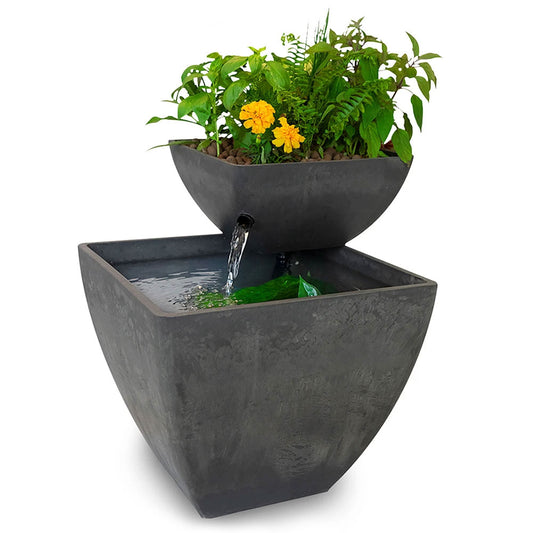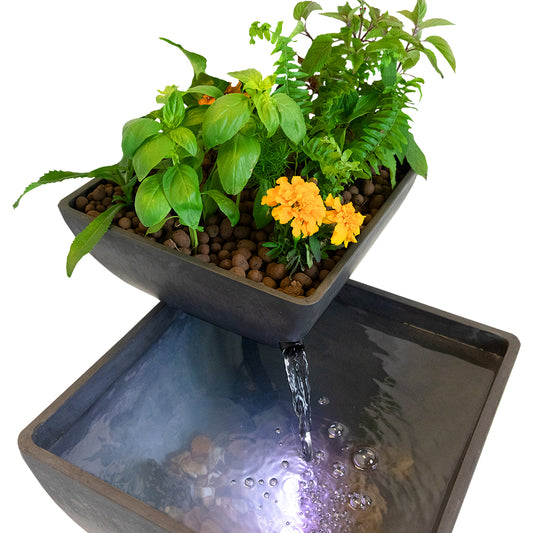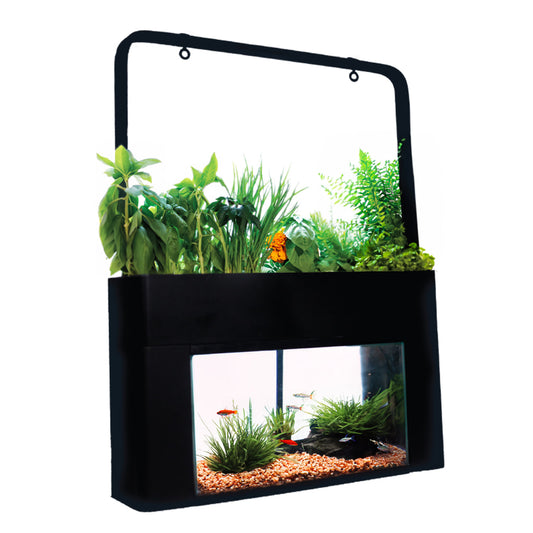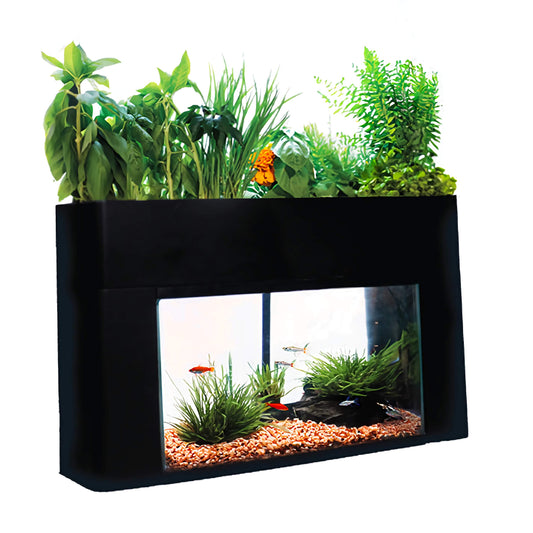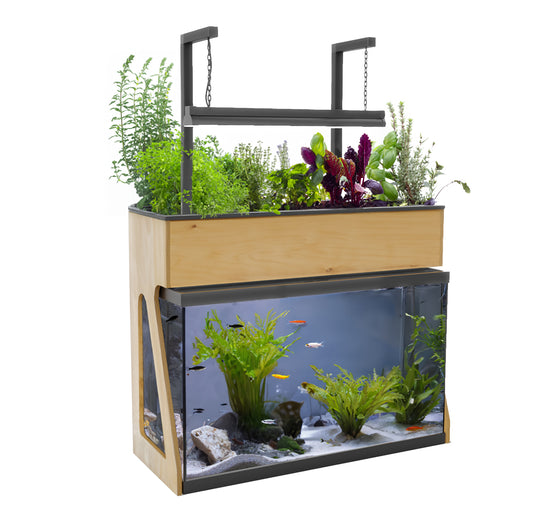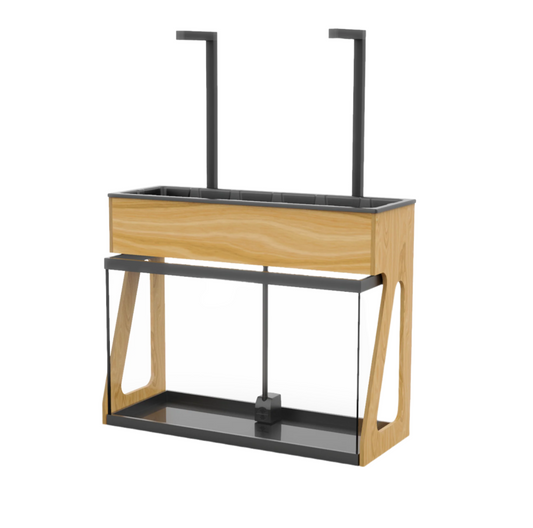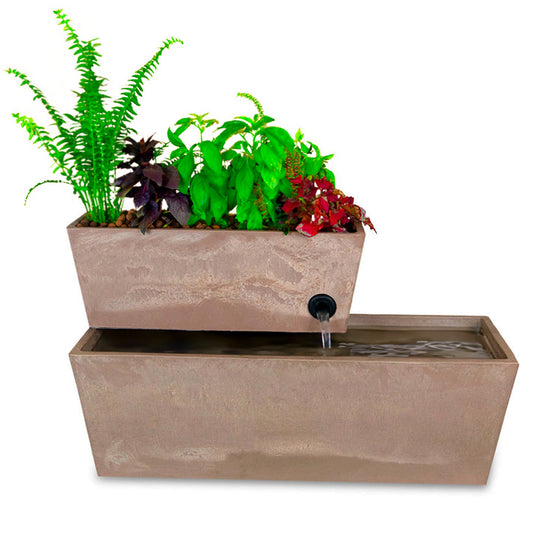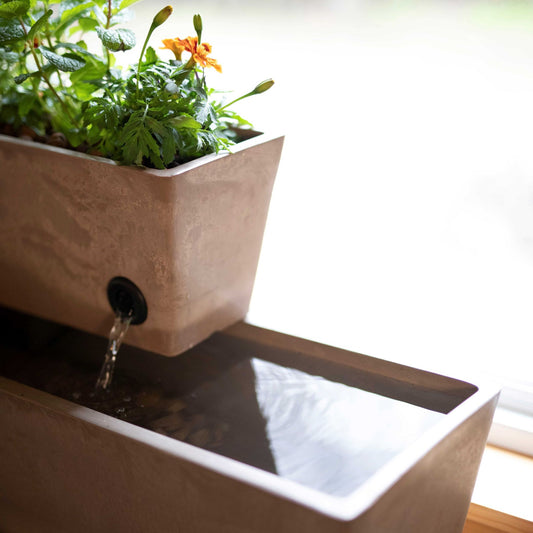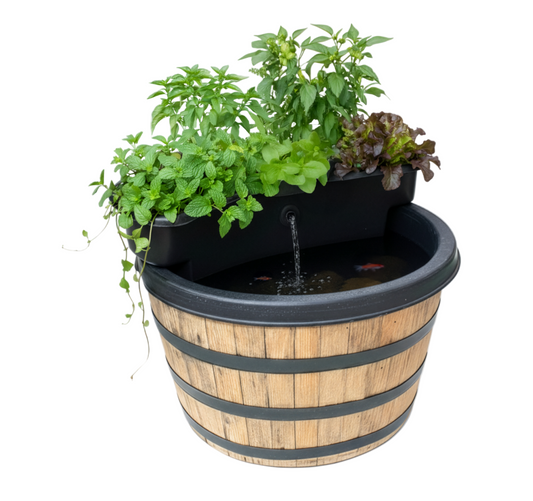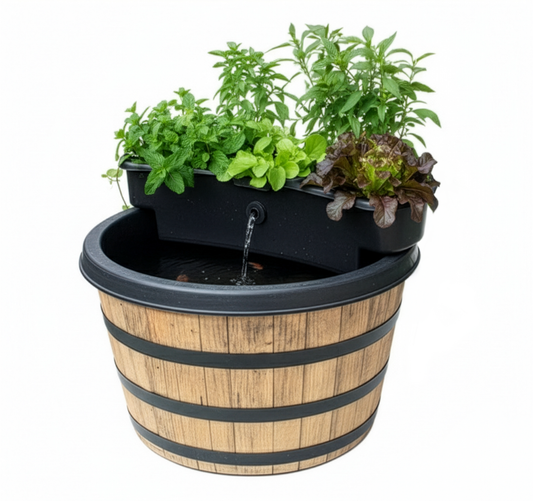Does Aquaponics Work on Mars? Exploring the Possibilities

With the increasing interest in space exploration and the potential for establishing a human settlement on Mars, it's natural to wonder if it's possible to grow food on the Red Planet. One of the most promising options is the use of aquaponics. Aquaponics is a sustainable agriculture system that combines traditional aquaculture (fish farming) with hydroponics (soil-free plant cultivation). The waste produced by the fish provides nutrients for the plants, and the plants clean the water for the fish, creating a closed-loop ecosystem.
Why Aquaponics on Mars?
Growing food on Mars presents significant challenges, including a lack of atmosphere, extreme temperature fluctuations, and harsh radiation conditions. However, the closed-loop nature of aquaponics systems makes them ideal for use in these conditions.
Not only does an aquaponics garden on Mars provide a sustainable food source for astronauts, but it also offers the potential for scientific discovery. By studying how plants and fish grow and interact in the harsh Martian environment, we can gain new insights into the potential for agriculture on other planets and moons.
The Challenges of Aquaponics on Mars
There are several challenges that must be overcome to establish an aquaponics garden on Mars. The most significant of these include:
- Energy: Maintaining a stable temperature for the plants and fish requires a significant amount of energy. This energy must be provided by solar panels, batteries, or a combination of both.
- Water: Water is a precious resource on Mars and must be conserved as much as possible. This can be achieved through the closed-loop nature of aquaponics systems, which reuse water instead of losing it to evaporation.
- Lighting: Plants require light to grow, and the lack of atmosphere on Mars means that the plants must be provided with artificial light.
- Protection from Radiation: The harsh radiation environment on Mars can be damaging to both plants and fish. To mitigate this, the aquaponics garden must be housed in a radiation-proof structure.
The possibility of establishing an aquaponics garden on Mars is an exciting one, offering the potential for both scientific discovery and the sustainable production of food for astronauts. However, significant technological advancements will be required to overcome the challenges posed by the harsh Martian environment.
Incorporating Microorganisms in Aquaponics on Mars
In addition to plants and fish, another important aspect of an aquaponics system is the presence of microorganisms. These microorganisms, such as bacteria and fungi, play a crucial role in breaking down waste products from the fish and converting them into nutrients that can be used by the plants.
While the harsh environment on Mars may have an impact on the survival of these microorganisms, it's still possible to incorporate them into an aquaponics system on the Red Planet. To do this, special measures must be taken to ensure their survival and health, including the use of specially-engineered microbial habitats and the selection of hardy microbial species that can withstand the harsh Martian environment. Incorporating microorganisms into an aquaponics system on Mars would further improve the sustainability of the system by allowing for the efficient recycling of waste products and reducing the need for external inputs, such as fertilizers and nutrients.
The Importance of Diversity on Mars
Another important consideration for an aquaponics garden on Mars is the selection of plant species that can thrive in the harsh Martian environment. A diverse range of plant species, including leafy greens, herbs, and root vegetables, would not only provide a nutritious and varied diet for astronauts but also provide a more stable and resilient ecosystem.
Additionally, it's important to consider the impact that growing certain plants may have on the closed-loop nature of the system. For example, some plants may produce more waste products than others, which could impact the health and survival of the fish. By carefully selecting plant species and monitoring their impact on the system, it's possible to maintain a balanced and sustainable aquaponics garden on Mars.
Growing food on Mars poses several challenges, including the harsh and unpredictable Martian environment, limited resources, and a lack of soil for traditional agriculture. However, there are several potential solutions for growing food on the Red Planet. Implementing these solutions, along with others, will be crucial in establishing a sustainable food source for future Mars missions and settlements.
- Hydroponic and aeroponic systems: These soil-free systems use nutrient-rich water and air, respectively, to grow crops. They are low-maintenance and can be easily controlled to provide optimal growing conditions.
- Greenhouses: Greenhouses would provide a controlled environment for growing crops on Mars, protecting them from the harsh Martian conditions.
- Aquaponics: This closed-loop system combines hydroponics and aquaculture, where fish provide nutrients for the plants and the plants clean the water for the fish.
- Vertical farming: This method utilizes multi-tiered stacking systems to grow crops in a controlled environment, maximizing space efficiency and reducing the need for vast areas of farmland.
- Crop selection: It is important to choose crops that are hardy and able to survive in the Martian environment, such as leafy greens, herbs, and root vegetables.
The Future of Aquaponics on Mars
While there are many challenges to overcome in establishing an aquaponics garden on Mars, the potential benefits are significant. From providing a sustainable food source for astronauts to advancing our understanding of sustainable agriculture in harsh environments, the possibilities of aquaponics on Mars are truly exciting.
As technology continues to advance and we gain a deeper understanding of the conditions on Mars, it's likely that we will see further developments in this area, including the establishment of larger and more complex aquaponics systems. The future of aquaponics on Mars is bright, and holds the potential for many scientific and technological advancements that will benefit not only space exploration but life on Earth as well.

